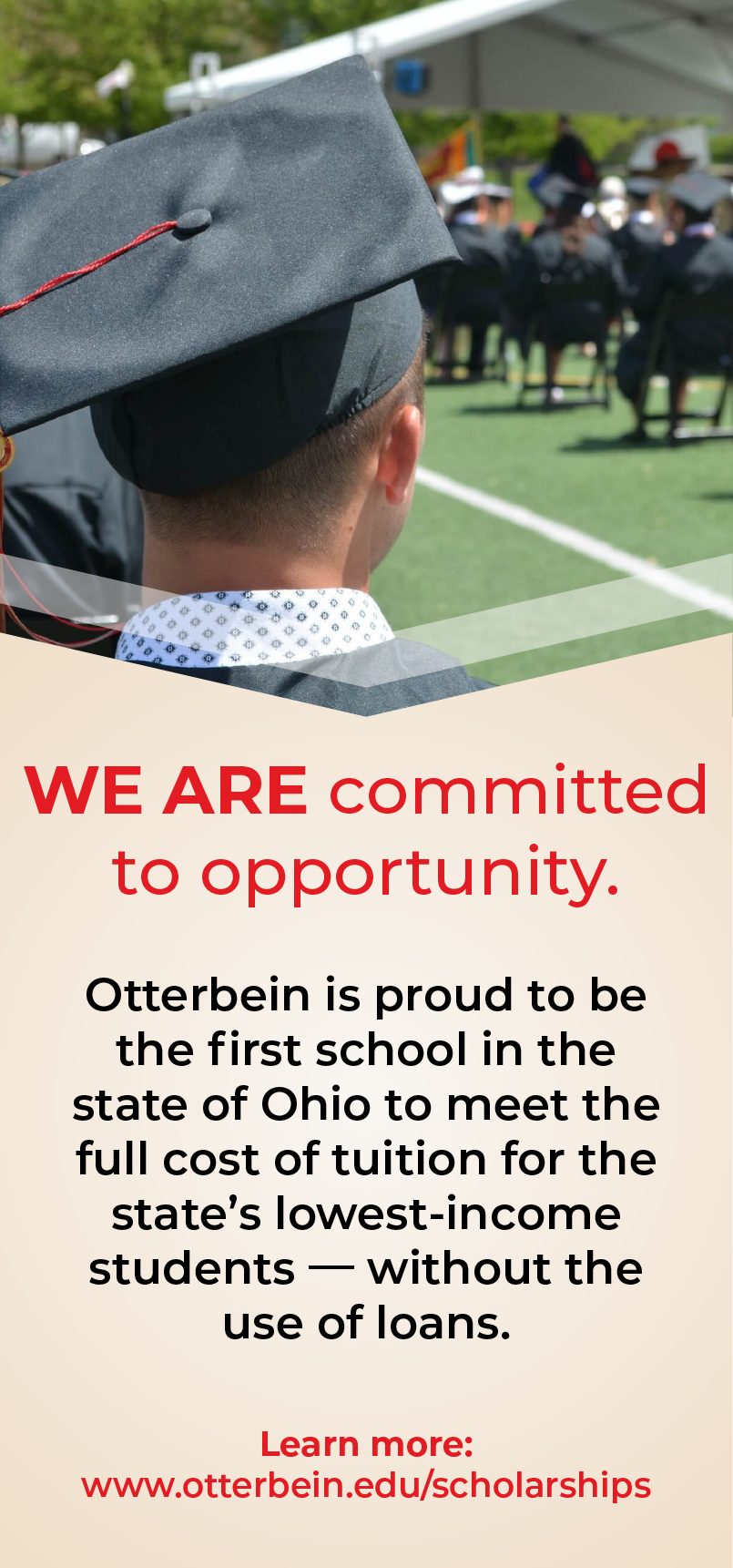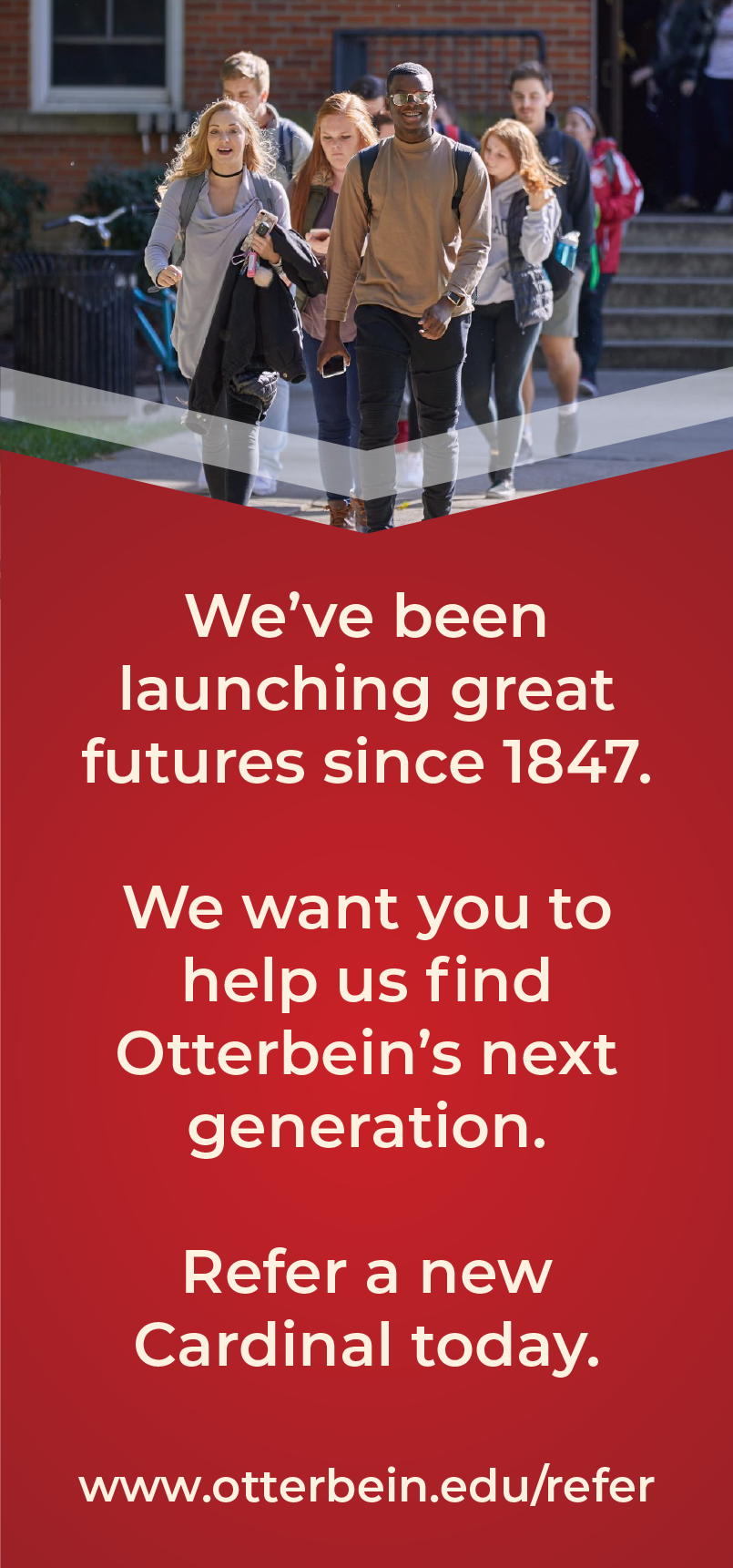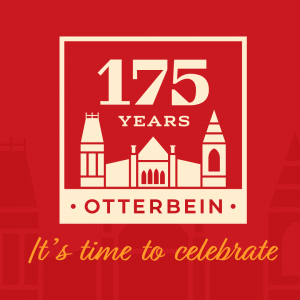In a 2022 survey conducted by Inside Higher Ed and College Pulse, 85% of college students say it’s important for their campus to prioritize sustainability. At Otterbein, students are taking leadership roles in developing sustainability projects and educating others on topics from pollinators and recycling to food waste.
STUDENTS
MAKE
BIG
IMPACT
on Campus with Smaller Impact on the Environment
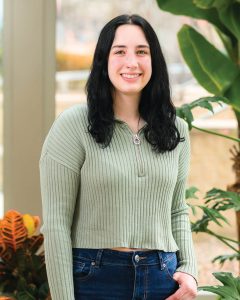 Senior Hannah Brown, a double major in biology and zoo and conservation science, has been working with Facility Services on a project to plan a pollinator and rain garden since spring 2022. Now, in her final semester, the gardens are ready to be planted north of the Campus Center, with Facility Services planting an additional pollinator garden at The Point.
Senior Hannah Brown, a double major in biology and zoo and conservation science, has been working with Facility Services on a project to plan a pollinator and rain garden since spring 2022. Now, in her final semester, the gardens are ready to be planted north of the Campus Center, with Facility Services planting an additional pollinator garden at The Point.
Brown received funding for the project from the Otterbein Sustainability Committee and a Vernon Pack Fellowship of $1,000, as well as a seed donation from Marci Lininger, a district environmental coordinator at the Ohio Department of Transportation. Professor Jeff Lehman and the Otterbein Chapter of the Botanical Society of America recommended native plants for the garden.
Rain gardens improve drainage, purify storm water runoff, and prevent erosion using a combination of rocks and deep-rooted plants. Brown stressed the importance of using native plants as habitat for bees, songbirds, and butterflies in this plan.
“We’re losing pollinator species, and they’re in great decline all throughout the world. Just by starting off small, we can make a big difference in the pollinator species around Otterbein,” she said.
Brown hopes students will use the gardens in many ways.
“Students can go out and collect observational data for research projects, or just go out and use the garden for leisure. There are going to be signs talking about the different plants that are there and the types of pollinators you might see,” said Brown. She also hopes it will inspire more projects across campus.

Student Organizations
In addition to the students profiled in this story, these student leaders are running programs to educate their peers about sustainability issues:
Animal Conservation Club
Payton Chatfield
SEEDS
Bellastar Jakresky, Evan
Friend, and Breanna Teece
Plan-It Earth
Abby Hanselman,
Phoebe Gibson, and
Tess Gallaspie
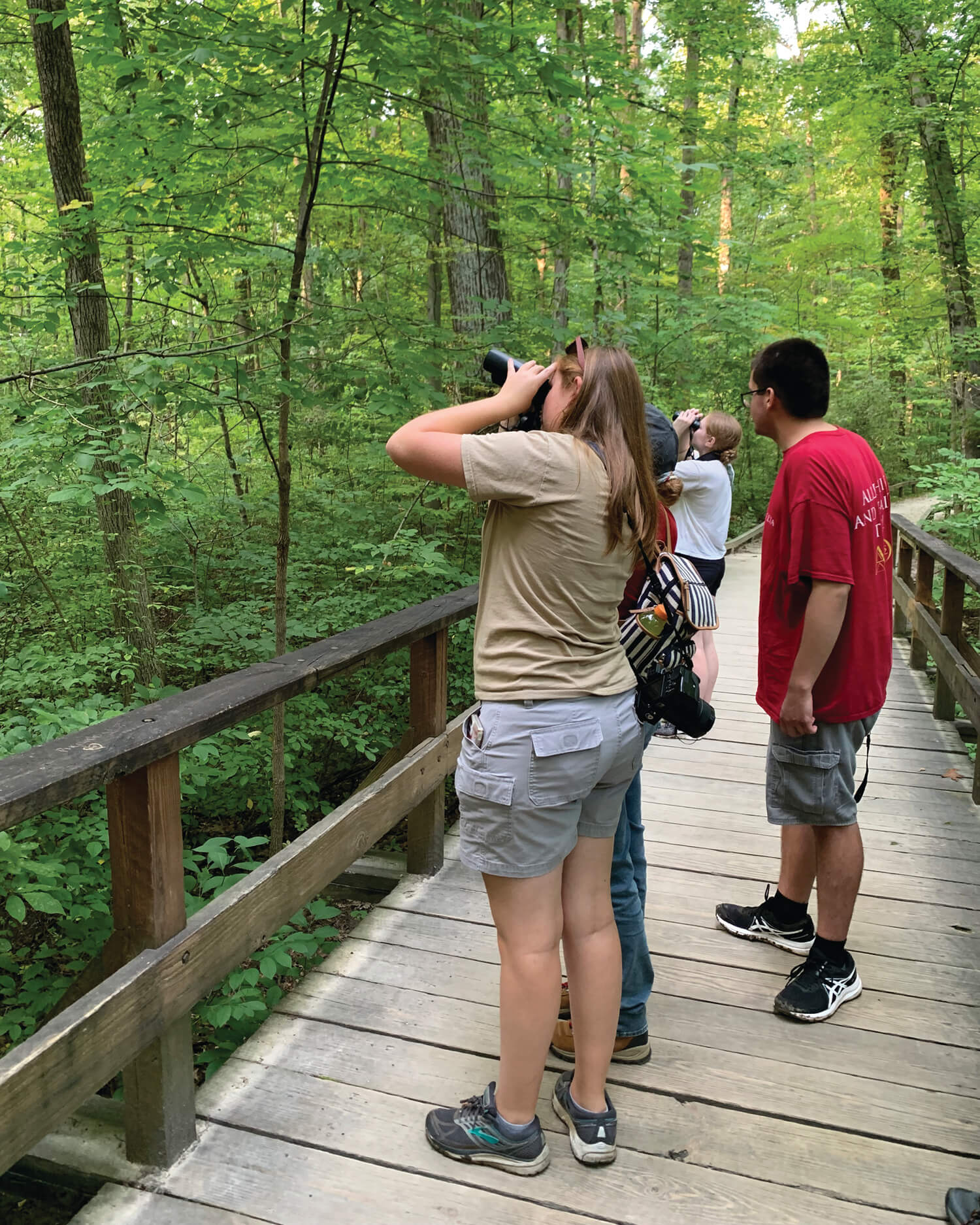
Otterbein Animal Coalition
Lauren Fedder
BEES
Kendall Sestili
TREES
Hannah Brown and
Eli Gould
BirderBein
Katelyn Shelton
Students also kick-started a new initiative by the campus Sustainability Committee.
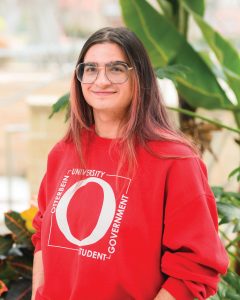
Junior Lukas Patel, a studio art major with a ceramics concentration, brought concerns about campus recycling from the Otterbein University Student Government to the Sustainability Committee. As a member of both, Patel has a unique opportunity to generate change.
The biggest concern was the mixing of recycling and trash on campus. As a result, the Sustainability Committee is starting a “Recycling Reboot” following conversations with students, faculty, staff, and Rumpke, Otterbein’s waste management vendor.
Patel explained that this project was created to divert items going into the landfill and improve recycling habits on campus. “The plan will start with a focus on the things we can recycle correctly and phase in more items as we are able to educate everyone on campus. Creating better signage for all recycling and trash bins is included in this plan,” he said.
“The reboot has already begun as a pilot in Roush Hall, and we hope to fully implement the plan across campus in the fall,” Patel said.
As for the student role in this project, he said, “I think it is essential to have student voices in conversations affecting campus, like this committee does.”
Associate Professor Bethany Vosburg-Bluem, chair of the Sustainability Committee, agrees. “I believe it truly takes a whole community to successfully contribute to sustainability efforts and student voices and participation are both essential.”
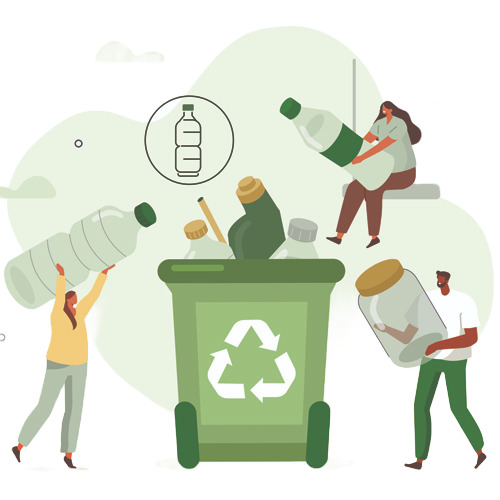
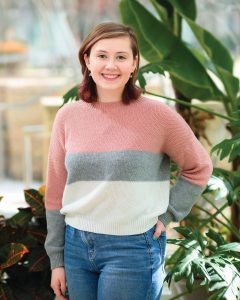 First-year Student Rachel Malek, used an art class project to educate others about food waste. For Art 1150: Design 3D, the freshman art and psychology major created a board game.
First-year Student Rachel Malek, used an art class project to educate others about food waste. For Art 1150: Design 3D, the freshman art and psychology major created a board game.
“I was inspired to make this game because I think teaching people about certain food groups might help people better understand the choices that they make when shopping or throwing their food away,” said Malek.
The four-player game, Let’s Taco ‘Bout Food Waste, is designed with lunch tray-styled game boards and food chips with “trash points” based on the environmental impact of the food. 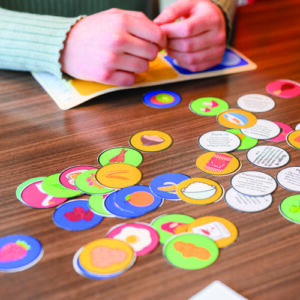 For instance, salmon is ranked as a six because it contains chemicals that contaminate water and hurt biodiversity. Mushrooms are zero because they are natural decomposers and help the environment.
For instance, salmon is ranked as a six because it contains chemicals that contaminate water and hurt biodiversity. Mushrooms are zero because they are natural decomposers and help the environment.
“I found out that for a lot of healthier foods, there’s a lot of fertilizer that goes into production,” said Malek.
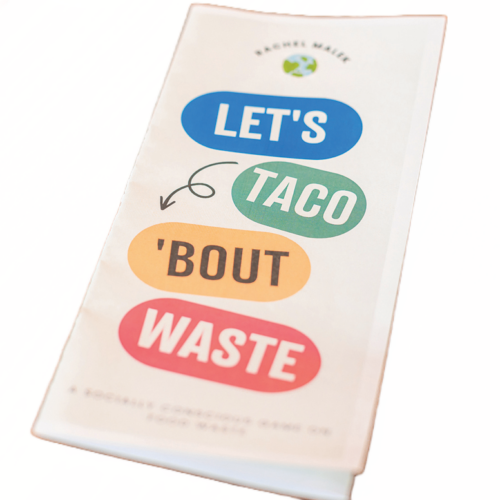
Dean of Student Engagement Melissa Gilbert advocates for the student leaders and environmentalists on campus. “They are applying the skills from their academic pursuits to the big questions in front of us and are showing their peers that change is possible. Illuminating possibility is one of the best ways to mobilize others to get involved, whether it is the possibility of a butterfly landing on the coneflower, or the plastic bottle from your soda making its way to a recycling facility,” said Gilbert.
students painted rocks for the pollinator garden
Academic Programs:
Students with an academic interest in sustainability and the environment can combine their interest in science with their passion for the planet in these programs:

